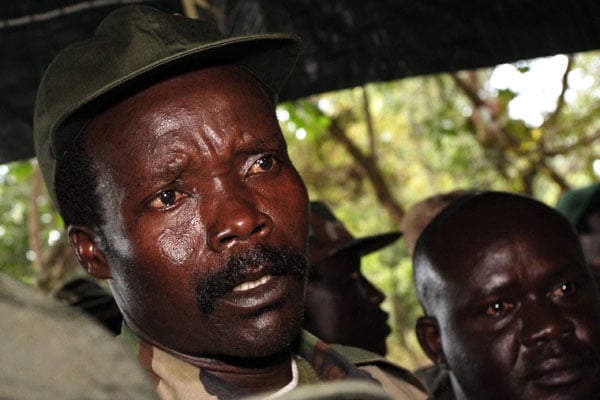Prime
Mixed reaction as ICC prosecutor seeks to confirm Kony charges

LRA leader Joseph Kony is accused of murder, cruel treatment, enslavement, rape, and attacks against civilian population. PHOTO/FILE
What you need to know:
- Some Acholi leaders say the moves goes against the principle of fair hearing.
A plea by the chief prosecutor of the International Criminal Court (ICC) to ask the judges to confirm charges against Joseph Kony, the leader of the Lord’s Resistance Army (LRA) rebels, has attracted mixed reaction from leaders across Acholi Sub-region.
Last week, the ICC chief prosecutor, Mr Karim Khan, said he would ask judges to confirm charges against Kony even in his absence.
“This is the first time that my office has made such a request since the establishment of the ICC,” he said in a statement.
“I have determined it is both necessary and appropriate to seek to advance proceedings against him to the fullest extent compatible with the Rome Statute,” the charter which governs the ICC, he added.
However, Mr Lakony Michael, the chairperson of Amuru District, said it is a bad move since it is against the principle of fair hearing.
“That is an infringement against the individual’s rights. If the ICC respects human rights and equity, they must be in a position to try a person that is present and some of us do not believe that Kony is alive,” Mr Lakony said.
According to the ICC, the allegations against Kony in the arrest warrant include murder, cruel treatment, enslavement, rape, and attacks against the civilian population. Ms Betty Aol Ocan, the Gulu City Woman MP, said trying Kony in his absence or presence is of no consequence to the victims.
“With or without justice, the people had already taken another direction with the view of sitting to dialogue and reconcile and proper compensation. Like [Dominic] Ongwen who was recently convicted, it has not changed anything,” Ms Aol said.
ALSO READ: Trouble in paradise for LRA returnees
On February 4, Ongwen, a former LRA commander, was convicted of 61 crimes, including murder, rape, torture, and forced marriage, committed in northern region in 2003 and 2004. He however, appealed the conviction. The two-decade LRA insurgency came to an end in 2005.
Prof Morris Ogenga Latigo, a former legislator and a participant in the Juba peace talks, said the steps by the ICC against Kony have a limited impact on the victims.
Prof Ogenga suggested that the international community should focus more on recognising the effects and consequences that the war has had on the victims and address it. Gulu Archbishop John Baptist Odama said the move is not unique.
“This (confirmation of charges against Kony) is not something new to us, so I have nothing to say regarding this issue,” Archbishop Odama said.
However, the Northern Uganda Diocese Bishop Godfrey Loum questioned the ICC’s intentions.
“Why would the ICC go ahead to try Kony before he is arrested? This prosecution does not make sense. I think the court should hold on until Kony is arrested, how do they expect him to defend himself in his absence?” Bishop Loum wondered.
He said although people want justice against Kony, he should be subjected to a fair hearing.
Whereas suspects cannot be tried in absentia at the ICC, Mr Khan said it is possible to hold confirmation hearings while they are still fugitives.
Any hearing involving Kony would be a “meaningful milestone for victims of Mr Kony’s crimes who have waited patiently for justice for almost two decades,” Khan said.
Background
The LRA’s campaign of violence has claimed more than 100,000 lives and seen 60,000 children abducted.
The violence eventually spread to Sudan, the Democratic Republic of Congo and Central African Republic.
The allegations against Kony in the arrest warrant include murder, cruel treatment, enslavement, rape, and attacks against civilian population, the ICC said.
In 2021, the ICC convicted a LRA child soldier-turned commander, Dominic Ongwen, of war crimes and crimes against humanity and sentenced him to 25 years in jail.
He has appealed against the verdict and sentence, arguing that he was scarred by his own history and still believed he was “possessed” by the spirit of Kony.
The ICC was set up in 2002 to bring perpetrators of the world’s worst crimes to justice, but has been criticised for choosing many of its cases from African nations.




